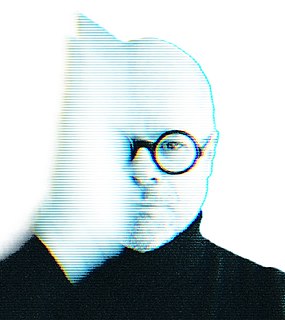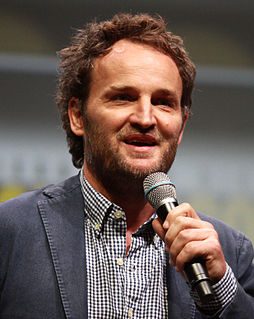A Quote by Martin Firrell
If the great Western experiment fails and we end up living in totalitarian war-on-terrorism states, one day someone's going to say, 'Well democracy doesn't work because they had to give it up'.
Related Quotes
What's wrong with the world Peter? God, I don't know. Where do you start? People give up. We're defeatists and we stop striving or fighting or enjoying things. It doesn't matter what you're talking about - war, work, marriage, democracy, love, it all fails because everybody gives up trying after a while, we can't help ourselves. And don't ask me to solve it because I am the worst. I'd escape tomorrow if I could, from every single thing I've always wanted.
It was Harry Patch, who was the last living World War I veteran; and by veteran I mean someone who actually fought in the war, he didn't just happen to be in the army at that time, in the Great War. And when the Iraq War started, he was interviewed, and they said, well what do you think of this? And he said, in a very sad voice, "Well, that's why my mates died. We thought we were going to end all that sort of thing."
I grew up in low-income areas and I've seen people take negative energy and just accept it. They give into and end up living a pretty rough life. At a young age, I just knew I wasn't going to give in because I didn't want to end up being one of those people in the neighborhood that didn't have anything and lived a hard life.
I believe, whether it is the United States or Europe, they will all end up as multicultural societies. So India's this great experiment of a billion people of such great diverse persuasion, working together, seeking their salvation in the framework of a democracy. I believe it will have some lessons for all the multicultural societies.
I don't think the war is going to end, but the war is just going to change. So we talk about change all the time, well that's what's going to change. You know, we tried having an idiot try and justify the war and give us these rationales and now we're going to have a very articulate and capable black man say it.
The moral case is, people say, "Oh they're not ready for democracy," but that's something someone who lives in a democracy would say about someone who doesn't live in a democracy. Well, if democracy is the highest form of human potential, then it can't be true for us and not for them. But, the practical case is democracies don't invade their neighbors. Democracies don't traffic in child soldiers. Democracies don't harbor terrorists as a state policy. So there's a reason to have more democratic states.
The TV scientist who mutters sadly, "The experiment is a failure; we have failed to achieve what we had hoped for," is suffering mainly from a bad script writer. An experiment is never a failure solely because it fails to achieve predicted results. An experiment is a failure only when it also fails adequately to test the hypothesis in question, when the data it produces don't prove anything one way or another.
Will Smith would say your five closest friends are what you end up to be and ever since I heard him say that, I said I gotta know who's in my life because that's who you're going to become. That's advice I'd give to these young men out here, killing each other and at war at each other because it's bigger than that.
It's not right to respond to terrorism by terrorizing other people. And furthermore, it's not going to help. Then you might say, "Yes, it's terrorizing people, but it's worth doing because it will end terrorism." But how much common sense does it take to know that you cannot end terrorism by indiscriminately dropping bombs?
Because Al-Qaeda has been a non-state centered organisation, many of these scenarios do not exactly apply. These are not wars between states. And yet, it seems to me that we make a mistake if we accept the view that states are fighting terrorism, since we have abundant evidence for accepting the idea of state terrorism, and what is most urgent is to track and expose how state terrorism operates under the rubric of "democracy."
The threat of mutually assured destruction worked for the United States during the Cold War because it had proved its willingness to drop nuclear bombs on enemy cities at the end of World War II. It might work less well for Israel, because the Israeli Air Force has never deliberately targeted a large civilian population center, and its leaders have said its morality would not permit it do so.
When we speak of the origin of western democracy it's precisely here, in this territory that the modern definition of democracy first emerged in city/states known now as Greece. This was coming from a society in which 30 thousand citizens had rights and 300 thousand were slaves and citizens without rights that lived in this territory. So that was the concept of western democracy; some citizens had the prerogative of exerting their civil and political rights while the others had none.

































